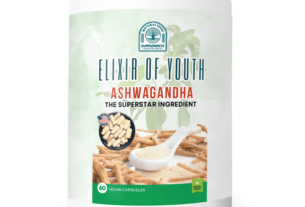There are more than 1 million visits to the ER annually for drug or medication poisoning. Activated charcoal is one of the emergency treatments we frequently use to treat critical poisonings.
But in recent years, activated charcoal has crossed over to the wellness industry. It has become increasing popular, and it is now included in many commercially available products including juice cleanses, hangover cures, toothpastes and face washes. (In 2019, Starbucks even introduced a frappuccino using the trendy ingredient.)
As an ER doctor, I am most concerned by its manufacturer-recommended use as a hangover cure. Does it actually work? Is it safe?
How does activated charcoal work?
Activated charcoal, also known as activated carbon, has been used medically to detoxify patients for almost 200 years. It’s produced by subjecting sources of carbon such as bamboo, coconut husk or wood to extremely high temperatures. This is key to activated charcoal’s mechanism of action as a highly effective absorption agent.
When blasted with high heat, charcoal becomes highly porous and develops a sponge-like ability to bind certain substances
Because of this superior binding ability, activated charcoal is our go-to in the ER in cases of suspected or known poisoning. Activated charcoal has moved to the forefront as traditional treatments such as ipecac-induced vomiting or stomach pumping have fallen out of favor; in short because gastric suctioning is high risk for aspiration of contents into the lungs.
How we use activated charcoal in the ER
Activated charcoal ought be administered within 1-2 hours of ingestion (or longer if the overdosed drug is a controlled- or extended-release version). Most patients are alert and awake and can tolerate the activated charcoal – a black odorless powder mixed with a liquid that they drink like a smoothie. But if needed, we will secure their airway and insert a nasogastric tube into their stomach through which we can administer the activated charcoal.
Will activated charcoal cure your hangover?
The available research is mixed on whether activated charcoal can effectively bind toxic alcohols. But the key point is that even if it could, alcohol migrates out of the stomach into the bloodstream too rapidly for activated charcoal to absorb it. In fact, a small study found that subjects who took activated charcoal 30 minutes after drinking had the same blood alcohol levels as those who did not take activated charcoal. So you can imagine that if activated charcoal did not reduce absorption by alcohol 30 minutes after drinking, it certainly won’t prevent a hangover if you take it hours later before you go to bed.
Need another reason to not mix alcohol and activated charcoal? Both alcohol – in the acute intoxication state and during a hangover – and activated charcoal can make you prone to vomit. Combine the two and you could be at high risk for pulmonary aspiration, where some vomit and charcoal could end up in your lungs – causing injury to lung tissue leading to decreased oxygen levels and possibly pneumonia. Charcoal can also cause constipation.
What you need to understand about activated charcoal
The bottom line: Activated charcoal is a very effective treatment option for certain drug or toxin poisonings in the ER. Since it does not bind alcohol or prevent its absorption into the bloodstream it should not be used as a hangover prevention or cure. Ingesting activated charcoal with alcohol or the next day may increase nausea and vomiting with a high risk for dangerous aspiration and lung injury. Exercise skepticism of any wellness products with purported benefits of activated charcoal.
Instead, opt for healthier and safer hangover cures. Hangovers are hard to prevent once alcohol is consumed. Aim instead to reduce the likelihood by drinking in moderation, hydrating while drinking and the next morning and exercising. Another tip: If you’re nauseated, skip the greasy, high-fat meal that takes longer to digest and can further irritate your stomach. Choose fast-digesting carbs like toast and bagels instead.


